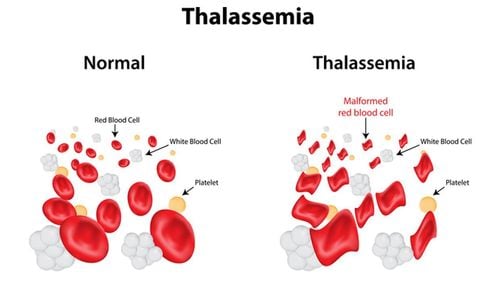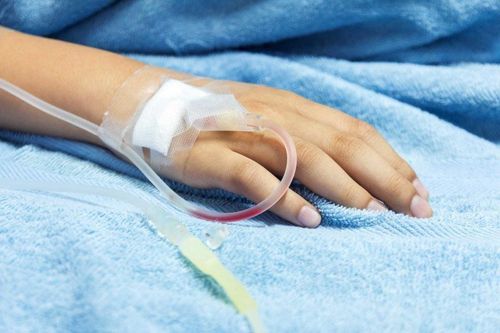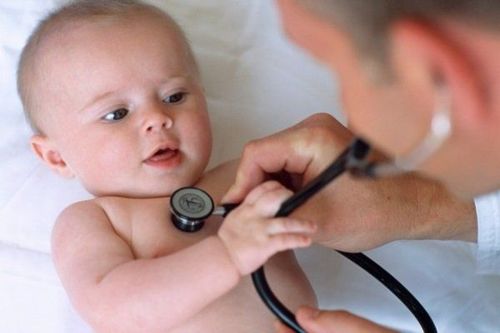This is an automatically translated article.
The article was consulted with Master, Doctor Nguyen Thi An - Pediatrician - Neonatologist - Department of Pediatrics - Neonatology - Vinmec Ha Long International General Hospital.Performing postpartum screening from 24-72 hours by taking blood from the heel of a child helps doctors screen for some genetic diseases and metabolic disorders in children, reducing the number of children with developmental delays. physical, intellectual and many other diseases.
1. Why is newborn screening necessary?
Currently, with the increasing intellectual level of the people, the social needs are increasing, so the need to improve the quality of the population is an issue that all countries in the world are concerned about. There are quite a few diseases that do not have obvious symptoms in infancy, so treatment and diagnosis are difficult. Therefore, newborn screening is done to help detect endocrine diseases, photo-metabolism disorders, and congenital diseases that affect health. Some diseases that are detected and treated in time have a high chance of recovery and normal development.For testing, in principle, blood from any part of the child's body can be done. However, usually, doctors will take blood from the heel because this is the part with an abundant amount of blood, enough to perform the test. In addition, the heel is a less sensitive part than other parts of the baby's body, so there is less pain when drawing blood.
Trắc nghiệm: các chỉ số cần chú ý về sự phát triển thể chất của trẻ
Chiều cao, cân nặng của bé ở từng giai đoạn nên là bao nhiêu là bình thường, bao nhiêu là bất thường? Cùng ThS.BS Ma Văn Thấm điểm lại xem bạn đã nắm được các chỉ số phát triển thể chất của bé chưa nhé!The following content is prepared under supervision of Thạc sĩ, Bác sĩ y khoa, Ma Văn Thấm , Nhi , Phòng khám Đa khoa Quốc tế Vinmec Dương Đông(Phú Quốc)
2. What diseases can be detected by taking blood from the heel?
The medical staff will perform a blood test for the baby's heel within 24 hours - 72 hours, preferably 48-72 hours after birth, or it can last for 7 days after birth, when the baby has had milk. more than 8 times.In case the babies are born prematurely and with low birth weight, they should be taken to have their heel blood drawn before the 20th day after birth. Children who need a blood transfusion after birth are taken after 3 months. The blood taken will be blotted on special dry blotting paper and brought for testing.
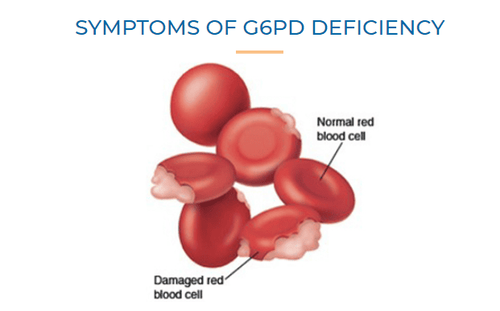
G6PD deficiency: this is a recessive genetic disease on the malformed X chromosome that causes jaundice, if If the child does not have complications of jaundice, then through the neonatal period, the disease will lead to the risk of brain disease, high mortality or neurological complications, retardation. There may be a subsequent outbreak of the disease. Congenital adrenal hyperplasia: This is also a genetic disease but the incidence is lower. This disease is not common, about 1 in 10,000 children is infected. When the body has this disease, the adrenal glands are not able to produce the two hormones cortisol and aldosterone according to the normal needs of the child. Having this disease can cause a girl's genitals to start developing in a masculine direction. Congenital adrenal hyperplasia is a lifelong disease, there is no definitive cure, and when the girl grows up, she has to give birth by cesarean section. Congenital hypothyroidism: Congenital hypothyroidism is a condition in which the thyroid gland does not produce enough hormones in infancy. The thyroid gland is an endocrine gland, although it is a very small part, it plays an important role in the body, regulating the development of organs, promoting the operation and maturation of every cell in the body. .
When the thyroid gland does not produce enough hormones, the child will become dull, the child will be affected both intellectually and in height. If detected early and treated promptly within 2 weeks to supplement thyroid hormone, the child will develop normally.
3. Is it dangerous to get heel blood?
The implementation of postpartum screening, taking heel blood is not dangerous for the baby, the cost is not too expensive but brings great efficiency.If the disease is detected early and treated in time, the child will develop comprehensively, avoiding dangerous complications that can cause the baby to be disabled or die.
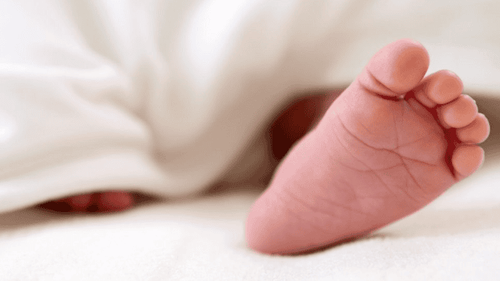
4. Why is the current rate of heel blood collection still quite low?
In Vietnam, taking care and raising children according to modern science is facing difficulties from the family side. Mothers often do not have economic control, in addition to conservative mothers-in-law, there will be many problems and conflicts in raising children.There is no consensus in the family on child care as well as a lack of insight from the family, which is the reason why the measure of taking blood from the newborn's heel has been propagated a lot , the benefits it brings are undeniable but almost the rate of implementation of this measure is very little, even in big cities like Hanoi or Ho Chi Minh City.
In fact, there are many diseases that cannot be seen with the naked eye, so in order for a child to develop normally, it is necessary to have more information about the child's health status in order to timely detect diseases and take blood. heel is essential.
Newborn screening with blood tests is included in the Maternity Packages. Customers who register for Maternity Package at Vinmec will be fully tested, prenatal care - during and after birth for both mother and baby. In addition, the hospital still provides newborn screening service for customers who are not registered to give birth at Vinmec but have a need.
Please dial HOTLINE for more information or register for an appointment HERE. Download MyVinmec app to make appointments faster and to manage your bookings easily.





